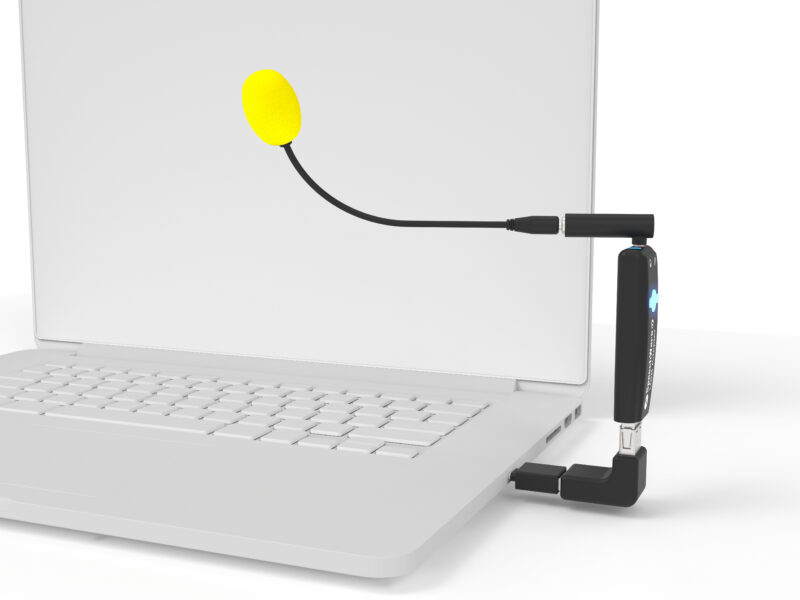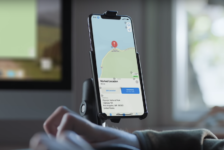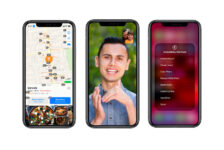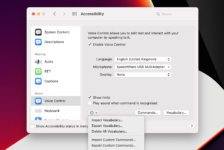Getting high levels of accuracy in the words you dictate into a email client, website text box, or document on a computer with speech recognition applications is no easy task.
Tech companies that make voice dictation apps, like Microsoft’s Voice Typing tool, Apple’s Voice Control, and Nuance Dragon Professional, don’t manufacture microphones and often they will offer up the impression that all the magic, when it comes to accuracy, happens in their applications. They even suggest the internal microphones on computers, or wireless earbuds, are all you need for accurate speech recognition.
However, from my experience the situation is more complicated. The quality and characteristics of the microphone you use plays a significant role in accurate voice dictation. After all, the better the audio signal coming through the microphone the faster and more accurate the transcription.
The strength and clarity of your voice can also have a big effect on accuracy, as well as the level of background noise in the environment you are operating in.
I have been using voice dictation as my only way of writing documents, emailing, posting to social media, and chatting online, for the past few years. I have muscular dystrophy, a muscle wasting disease, which means I can’t type on a keyboard. When I dictate, I need the best accuracy possible because if there is a recognition error, I cannot take to the keyboard to clear it up.
There is another reason I need accurate speech recognition. Whilst my voice is not overly affected by my disability, other than a softer voice, my breathing is compromised so I need to ration my spoken words to preserve energy. I cannot be wasting what for me is a scarce resource correcting dictation errors.
I have got through countless microphones over the years, trying to find a good one for voice dictation. In recent times I have opted for the mics of a Belgian company called SpeechWare, who have a solid reputation in the voice dictation industry for good quality microphones made especially for speech recognition. Most mics are made for vocals and singing.
Speech recognition for productivity
My daily driver, for writing documents, dictating emails, documents and chatting on WhatsApp in a web browser on my laptop, has been the company’s TravelMike. It is a mini-USB microphone that plugs into the USB port on the side of my laptop and takes up little desk space.
While I like using the TravelMike because of its small size, I have found with my compromised breathing, and softer voice, my mouth is just too far from the microphone capsule to pick up my dictation clearly, and for video conference and phone calls. The TravelMike has a short 3-inch (7.5 cm) pivoting, detachable snub-nosed microphone.
It was because of this issue, I contacted SpeechWare last year to ask them if they would be willing to make a longer flexible microphone boom to use with their TravelMike. I believed this would help bring the microphone capsule closer to my mouth when sat at a desk dictating on my laptop and thus improve voice pick up and accuracy.
At the time I did not think my proposal had much chance. Not many manufacturers are willing to disrupt manufacturing processes, established product lines, and marketing messages to meet the needs of one customer.
However, to my pleasant surprise my proposal received a positive response from SpeechWare’s managing director Jesús María Boccio. He explained he needed time for research and development on how, among other things, to adapt their existing microphone capsules into an all flexible 7 mm and 20 cm long boom, able to withstand constant bending and manipulation.
Several months went by and then last October the company sent me a pre-release test unit, which included my requested 20 cm long all flexible microphone boom, and they said they would be bringing my idea to market and calling the new product the KeyboardMike.
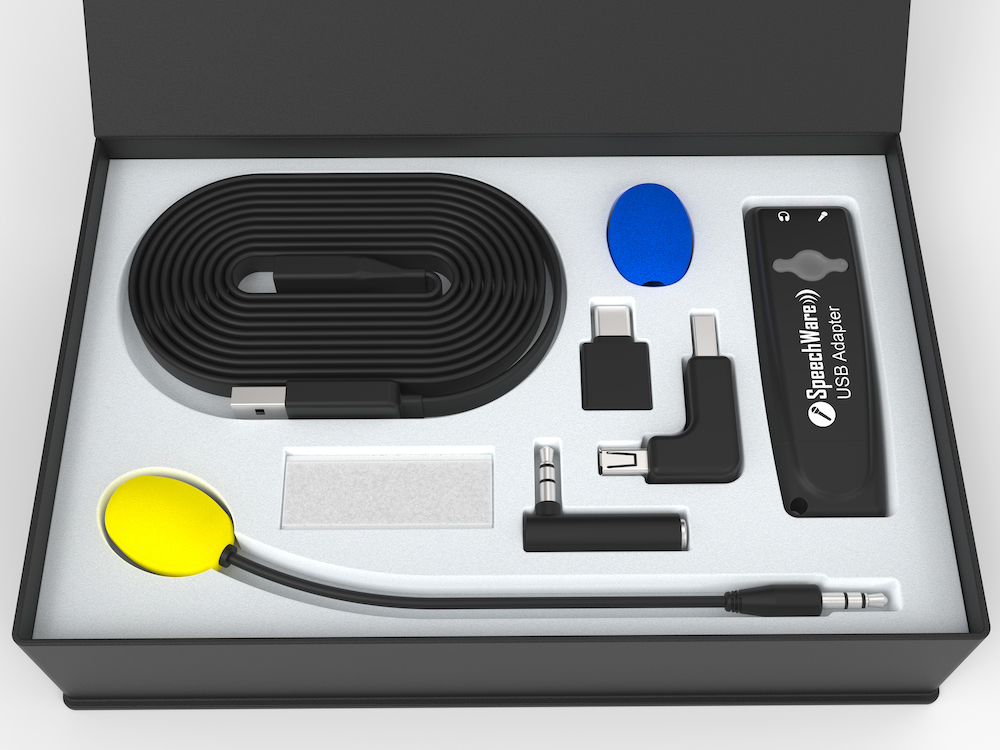
SpeechWare KeyboardMike
SpeechWare were intending to sell the KeyboardMike working in two modes: attached to the back of a desktop computer keyboard or to the back of a laptop or desktop monitor.
Through testing the demo unit last autumn, I soon identified an ideal third mounting position for the KeyboardMike that SpeechWare had not thought of: plugged into the side of a laptop with their proprietary USB male to female 90 degrees fixed angle connector to keep the USB Adapter in an upright position.
I like this position because it allows the microphone capsule to be as close to my mouth as possible without sticking directly into my face, which can be distracting. This optimum position also has the added benefit of not obscuring the laptop screen.
It is great that SpeechWare has acknowledged the benefits of this idea, not just for me, but for many of their customers, and they are offering a USB connector with the new KeyboardMike.
As a disabled user it has been great to see a company listening to my needs and creating a product that is useful for anyone who does a lot of dictation on their Mac or PC.
Designing inclusively
At the heart of this story is the idea of inclusive design, something that starts with meeting the needs of a disabled person and broadens out to be of benefit to everyone. It’s impressive that a manufacturer has listened to my feedback and produced a new product. I wish more companies engaged with disabled people in this way. It often leads to better products for everyone.
SpeechWare call me the “father of the KeyboardMike” with my probing showing there are alternative ways to make things.
Using the right microphone can really improve dictation on a Mac or PC. SpeechWare’s willingness to take my idea on board means I have a new microphone transforming the accuracy of my speech recognition and making my life easier and more productive every day.
Speech recognition innovation
It is an interesting time for people who use their voices to dictate on their devices.
Last April Microsoft bought the AI speech tech firm Nuance for $19.7 billion. Nuance is known for Dragon speech recognition software that uses deep learning to improve accuracy over time by adapting to a user’s voice. It looks like Microsoft is putting knowledge gained from its purchase of Nuance and Dragon to work right away as it develops a new accessibility application for windows called Voice Access currently undergoing user testing in the Windows Insider Program.
Google has improved speech recognition on the new Pixel 6 phones with the Tensor chip which uses machine learning to drastically improve the natural language processing for speech-to-text. I am hoping the company will bring the technology to its Pixelbook laptops.
Apple really needs to improve long form voice dictation on Mac computers. I have never been able to find a microphone that works with the company’s bug ridden Voice Control application to write emails and documents. However, the KeyboardMike is transforming accuracy when using Voice Control to such an extent it is almost productive now! Nevertheless, it would be good to see the company improve dictation in Voice Control on the Mac in 2022.
I have not reinvented the wheel with my input towards the development of the KeyboardMike, and there are other good and cheaper microphones available such as the Yeti Blue. However, with my lightbulb moment I am yet to come across a better speech recognition microphone that touches so many bases – accuracy, compact size taking up little desk space, and good for phone calls and FaceTime or Zoom on a computer.
The KeyboardMike is not cheap at €229 EUR including VAT, but accurate speech recognition is about small margins and the advantage this microphone gives me makes it worth the investment.
The KeyboardMike can be ordered from the SpeechWare website
Colin Hughes is not employed by SpeechWare and has received no payment from the company. All views are his own freely expressed opinions.
